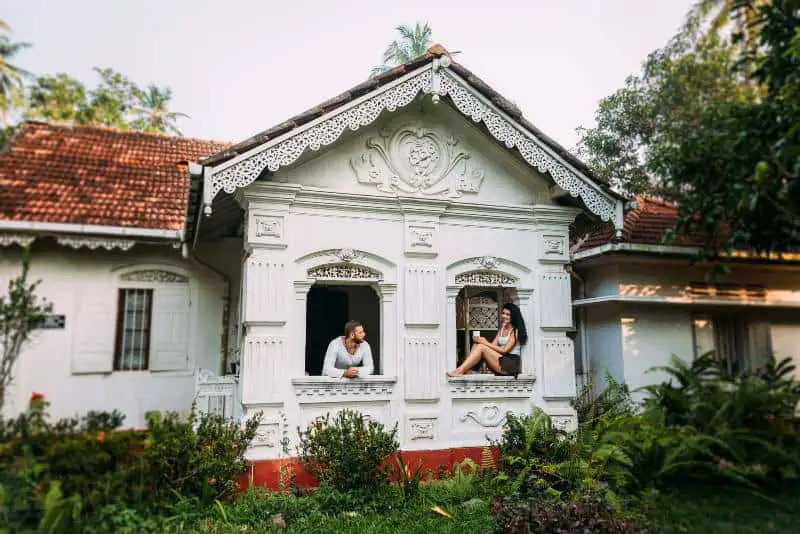The Pros and Cons of Renting vs Buying a House in Thailand
If you’re thinking of moving to Thailand, one of the biggest decisions you’ll have to make is whether to rent or buy a house. Both options have their pros and cons, and it can be challenging to decide which is the best option for you. In this blog post, we will discuss the pros and cons of renting vs buying a house in Thailand so that you can make an informed decision about what’s best for you.
Renting versus buying a house in Thailand has both pros and cons, depending on one’s individual needs. Those looking to make a long-term commitment may benefit from the purchase of a home and the security that comes with it, while those who would prefer more flexibility or plan to stay for a shorter amount of time might choose to rent.
Key Takeaways
- Those looking to make a long-term commitment may benefit from the purchase of a home and the security that comes with it, while those who would prefer more flexibility or plan to stay for a shorter amount of time might choose to rent.
- Renting a house in Thailand may be more affordable initially, as it eliminates the need to buy the property and set aside money for maintenance fees.
- On the other hand, buying a house allows you to build equity.

Pros of Renting a House in Thailand
Here are some of the pros of renting a house in Thailand:
Flexibility: the ability to move around easily
Living in Thailand offers a unique opportunity to experience living outside of the traditional modes of housing. Renting a house gives one the flexibility and autonomy to move around whereas being tied down to ownership of property may not be an option for some. Thailand is known for its international culture, vibrant lifestyle, and exotic locales which makes it all the more attractive.
Renting a home allows individuals to experience all that Thailand has to offer while continuing to maintain their regular lives back at home. Without the stress of ownership, renters are free to explore different areas of Thailand at their leisure, discovering whatever exciting new developments each area holds.
Cost-effective: lower upfront costs and no long-term commitment
Renting a house in Thailand can often be an advantageous decision when compared to purchasing one. There is significantly less of an upfront cost and no long-term commitment, making it very wallet-friendly. Renters also have the benefit of not needing to manage any maintenance or repair costs, as those are typically taken care of by the landlord.
Furthermore, depending on the length of the rental market period, renters can enjoy an ever-mutable home as they transition from place to place with relative ease. All in all, renting a house in Thailand offers many cost-effective benefits for those who desire mobility and flexibility in their living situation.
Maintenance: the landlord is responsible for repairs and maintenance
Renting a house in Thailand can be a great investment if you are looking for the freedom of having your own property without the commitment of ownership. One big advantage is that all maintenance and repairs are handled by the landlord instead of the tenant, saving the tenant time and money in finding a contractor, buying tools and equipment, and dealing with any problems that may come up. Furthermore, this decreases the stress associated with owning property and makes renting a house in Thailand an appealing option for many people.
Tax benefits: no property taxes
If you’re looking to rent a house in Thailand, you’re likely taking advantage of the many benefits that come along with it! Not only are you obtaining a beautiful place to live, but you’ll also be saving money on taxes. Unlike owning a property, renters do not have to pay any property taxes.
Personal income level: may not be able to afford to buy a house
Renting a house in Thailand is an amazing option for anyone looking to establish themselves in their home country. Not only is it an affordable alternative that allows many people to enjoy life in Thailand despite not being able to purchase a home, but it also provides flexibility that would be difficult with home ownership.
Renting allows people to move as their jobs or lifestyle changes, all while taking advantage of the beauty and culture of their home country. Whether you want a city home or a beachside escape, renting offers the opportunity and convenience to explore your options until you find exactly what works for you.
With renting, you’re free to choose from a wide selection of accommodations; from modern apartments and high-rise condo buildings to single-family homes or beachfront villas. You’ll find that each option offers unique benefits, such as furnished amenities or private gardens for relaxation time.
What’s more, depending on your budget and preferences, you could even opt for monthly or long-term leases that guarantee fixed rental costs and zero extra maintenance fees. So if you’re looking for a flexible living space where you can make yourself comfortable while exploring the sights, sounds, and culture of Thailand, renting is definitely worth considering!
If you’re planning to live in Thailand, it’s also crucial you know what the food is like, check out this article to find out more. There are a variety of delicious dishes you can find in Thailand and many restaurants that offer authentic cuisine. From seafood to curries, there is something for everyone here. Of course, the Thai people are famous for their spicy food so if you’re not used to it yet, don’t worry as you’ll be able to find plenty of milder dishes.
Cons of Renting a House in Thailand
Here are some of the cons of renting a house in Thailand:
No control over the property
Renting a house in Thailand does come with its fair share of drawbacks, the most notable being the lack of control that renters have over their living space. While those fortunate enough to find an old house in need of refurbishment might be able to customize certain areas and breathe fresh life into them, more often than not landlords generally require that no changes be made without their explicit permission.
This can be a huge problem for homeowners looking to truly make a house theirs- as it limits how much they can personalize their space and make it reflect their lifestyle and individual interests. Unfortunately, this means many renters have to settle for a dream home from afar, admiring rather than living within its four walls.
Lack of privacy
Due to more lenience in housing laws and the widespread preference for home-sharing, oftentimes there are shared walls between all houses that provide zero privacy.
Additionally, landlords typically want full control of their properties which can lead to rigid rules on common areas like gardens and hallways with no allowance for change or modifications. Furthermore, there can be many additional tenants beyond just yourself within the same house further encroaching on personal space and unwanted eyes. All in all, renting a house in Thailand comes with its own unique set of challenges related to privacy, many of which can significantly impact your quality of life.
No long-term investment
One of the most oft-cited cons of renting a house in Thailand is that it’s not necessarily a long-term investment. Because you don’t actually own the property, you won’t benefit from any equity gains or rental income. This may be fine if you plan to only live in Thailand for a short period of time, but for those looking for a more sustainable and permanent way to stretch out their retirement options, rentals can leave much to be desired.
Rent increases: risk of rent increase over time
Renters should be aware of the potential financial burden they face when entering a new rental agreement. While it’s possible to lock in fixed rates at first, landlords could increase your rent beyond that – resulting in an unwanted surprise down the line. Doing diligent research beforehand can help you make an informed choice about whether or not to commit long-term and prevent any unwelcome surprises as time goes on.
No sense of ownership
One considerable downside is the lack of ownership feeling. Without owning the property, the tenant cannot make any structural modifications or even decorate it beyond the landlord’s guidelines. Existing furnishings must usually be kept until the lease has expired, and renters also face significant penalties for breaking the contract before its termination date without proper justification.
In addition to a lack of control when it comes to aesthetics, rental tenants typically don’t benefit from equity or real estate appreciation if they stick with a house over a long period of time. Most importantly, make sure to consult a real estate agent if you’re considering a rental property to ensure that the contract is fair and legal.
Pros of Buying a House in Thailand
Here are some of the pros of buying a house in Thailand:
Long-term investment: property value may increase over time
Property in Thailand tends to appreciate in value over time, meaning that you can make a good amount of money from your purchase in future years. Additionally, the real estate market is more reliable than stocks and other forms of investments as it will maintain its worth throughout any fluctuations in the market. Therefore investing in property in Thailand offers an excellent opportunity to access financial security and gain wealth.
Sense of ownership: personalize and improve the property
Owning a home in Thailand is an attractive option for a number of people, as it can often provide great stability and wonderful benefits. Having a sense of ownership in one’s own home is one key advantage. Not only do you have the freedom to personalize and improve your property to meet your needs, but there may even be profit opportunities as well if you decide to resell down the road. Furthermore, real estate investment can offer both long-term capital appreciation and comfort in times of uncertain economic climates.
Tax benefits: potential property tax benefits
Buying a home in Thailand comes with some significant advantages, from lower property taxes to smaller interest rates on mortgages. Whether you’re looking for financial relief through deductions or allowances, local and municipal tax savings can be substantial – much more so than in other countries around the world.
Privacy and control: have privacy and control over the property
With no one to impede on your decisions, you are free to design or upgrade as you please – giving it an extra flair! As if that weren’t enough incentive, becoming part of a community forges strong relationships with locals who can help integrate newcomers into life more comfortably. All these factors come together to make buying property there something incredibly rewarding and worthwhile undertaking!
Building equity: paying off a mortgage builds equity in the property
One of the major advantages of buying property in Thailand is that you can build equity over time. As you pay off your mortgage, you are building up a financial cushion for yourself and increasing the value of your property. This can also be a great source of liquidity if you ever need access to this cash in the future.
Cons of Buying a House in Thailand
Here are some of the cons of buying a house in Thailand:
Cost: high upfront costs, including down payment and closing costs
Purchasing a home in Thailand can be an attractive option for many, with its warm climate, delicious cuisine, and beautiful beaches. However, there are some cons that must be taken into consideration before investing in property there. One of the primary disadvantages of buying a house in Thailand is the high upfront cost associated with it. The funds needed for a down payment and closing costs can be quite substantial.
Maintenance: a homeowner is responsible for repairs and maintenance
Another potential downside to investing in property in Thailand is that you are responsible for all repairs and maintenance. This can be costly over time, as any issues will need to be taken care of quickly and efficiently or the value of your home could potentially depreciate if not addressed properly.
Risk: property value may decrease over time
Although the potential for capital appreciation is high in Thailand, there’s always a risk that property values may decline over time. This can be especially true if you are buying an older home or one that needs major repairs. In these cases, it’s important to do your research and weigh all factors carefully before investing in any property.
Location: may not be able to afford to buy a house in the desired location
Depending on your budget and desired location, you may not be able to afford to buy a house in the area of Thailand that you would most like. Unlike renting, This can be quite limiting and make finding the right home more difficult.
Financing: may be difficult to get approved for a mortgage
It can be difficult to get approved for a mortgage in Thailand, as the process is not always straightforward. This can make buying property there more challenging than in other countries.
Make sure to check the Thai government for information on mortgage regulations and requirements, as this can help you make an informed decision about whether buying a house in Thailand is the right move for you.
Renting vs Buying a House in Thailand FAQs
Is it better financially to rent or buy a house?
There is no conclusive answer to the question of whether renting or home ownership is preferable. The answer depends on your financial status, lifestyle, and personal objectives. You must consider the advantages and disadvantages of each option based on your income, savings, and way of life.
Is buying property in Thailand a good investment?
You should expect a profit from your investment if it is to be considered a good financial investment decision. Because of this consistent appreciation in property value over time, Thailand is an excellent option (recent global economic issues aside).
Is it risky to buy property in Thailand?
There is also the fact that the housing market in Thailand is not as heavily controlled as the housing markets in certain other nations. Nevertheless, so long as you do your homework and take common-sense precautions to safeguard yourself, purchasing real estate in Thailand should be completely risk-free for you.
Can a foreigner rent a house in Thailand?
There are no restrictions on foreigners renting a property in Thailand. There are no limitations; all you need is a valid passport and the cash equivalent of your deposit. Rooms, condominiums, mansions, and even entire villas are just some of the options that are available to prospective renters.
Do foreigners pay property tax in Thailand?
When an ex-pat lives in Thailand, they are granted an automatic extension on their tax filing deadline until the 15th of June of the “calendar year” that follows (One may not file using the calendar year as it is the standard in Thailand for foreign tax purposes).
- Although the deadline for making tax payments is the 15th of April, an extension can be requested up until the 15th of October.
- If you are a foreigner living in Thailand and you have any of the following, you are needed to file tax forms:
- a foreign bank or financial accounts, an investment business, or an ownership stake of 10% or more in a corporation or partnership are examples of entities that meet these criteria.
Conclusion
It’s time to make a decision – paying rent or buying in Thailand? There are great benefits to both choices! Renters can enjoy the flexibility and cost savings of monthly payments, while homebuyers have access to additional amenities. Ultimately, it comes down to what works best for you; so take your personal needs, preferences, and budget into account before making this important choice.
To find more information on living abroad in Thailand we invite readers interested in learning more about their options here to subscribe to our newsletter where they will get helpful tips as well as be able to support with any questions that may come up during the process.






